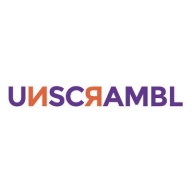

Teradata and QBO compete in the data management and financial software categories. Teradata has the upper hand in handling large-scale data environments and advanced analytics, whereas QBO excels in cloud accessibility and user-friendliness.
Features: Teradata offers parallel processing capabilities, massive data handling, and advanced analytics, making it a robust solution for complex data environments. It provides multiple deployment models and excels in speed and scalability. QBO provides cloud-based accessibility, seamless integration with other systems, and user-friendly features for easy financial management.
Room for Improvement: Teradata users seek more cost-effective solutions, better cloud adoption, and improved integration capabilities, particularly for unstructured data. QBO can improve its inventory management, workflow integration, and billing options, along with enhancing user support.
Ease of Deployment and Customer Service: Teradata supports diverse deployments, including on-premises, hybrid, and cloud, with generally well-regarded customer service albeit with varying response times. QBO ensures rapid deployment with its cloud-based approach and offers quick, efficient customer service aligned with user needs.
Pricing and ROI: Teradata is known for high upfront costs, offering significant long-term ROI, especially in large-scale operations. QBO, although seen as expensive, justifies pricing with comprehensive features and straightforward cloud deployment, making it a worthwhile consideration for many businesses.
| Product | Market Share (%) |
|---|---|
| Teradata | 0.9% |
| QBO | 0.6% |
| Other | 98.5% |


| Company Size | Count |
|---|---|
| Small Business | 28 |
| Midsize Enterprise | 13 |
| Large Enterprise | 52 |
QBO combines the power of natural language and spontaneous collaboration to deliver on-demand insights to the decision-makers. Winning features of QBO: 1. Easily connect to multiple internal and external datasets 2. Slice-and-diced data in infinite ways using natural language (English) and interactive visualizations 3. Responds easily to descriptive, diagnostic, predictive and prescriptive questions 4. Native integration with Microsoft Teams 5. Save and share your findings easily on interactive boards URL of the product : https://www.unscrambl.com/qbo-insights/ Powered by Unscrambl, we believe that our increasingly complex world of data can be simplified and transformed into actionable insights, saving valuable time and resources for every business. Unscrambl develops next-generation conversational analytics software that gives business users the power to access and consume data instantly and collaboratively. Unscrambl is headquartered in the United States and has offices in Singapore, Turkey, India, and the Philippines. For more information, please visit www.unscrambl.com
Teradata is a powerful tool for handling substantial data volumes with its parallel processing architecture, supporting both cloud and on-premise environments efficiently. It offers impressive capabilities for fast query processing, data integration, and real-time reporting, making it suitable for diverse industrial applications.
Known for its robust parallel processing capabilities, Teradata effectively manages large datasets and provides adaptable deployment across cloud and on-premise setups. It enhances performance and scalability with features like advanced query tuning, workload management, and strong security. Users appreciate its ease of use and automation features which support real-time data reporting. The optimizer and intelligent partitioning help improve query speed and efficiency, while multi-temperature data management optimizes data handling.
What are the key features of Teradata?
What benefits and ROI do users look for?
In the finance, retail, and government sectors, Teradata is employed for data warehousing, business intelligence, and analytical processing. It handles vast datasets for activities like customer behavior modeling and enterprise data integration. Supporting efficient reporting and analytics, Teradata enhances data storage and processing, whether deployed on-premise or on cloud platforms.
We monitor all BI (Business Intelligence) Tools reviews to prevent fraudulent reviews and keep review quality high. We do not post reviews by company employees or direct competitors. We validate each review for authenticity via cross-reference with LinkedIn, and personal follow-up with the reviewer when necessary.